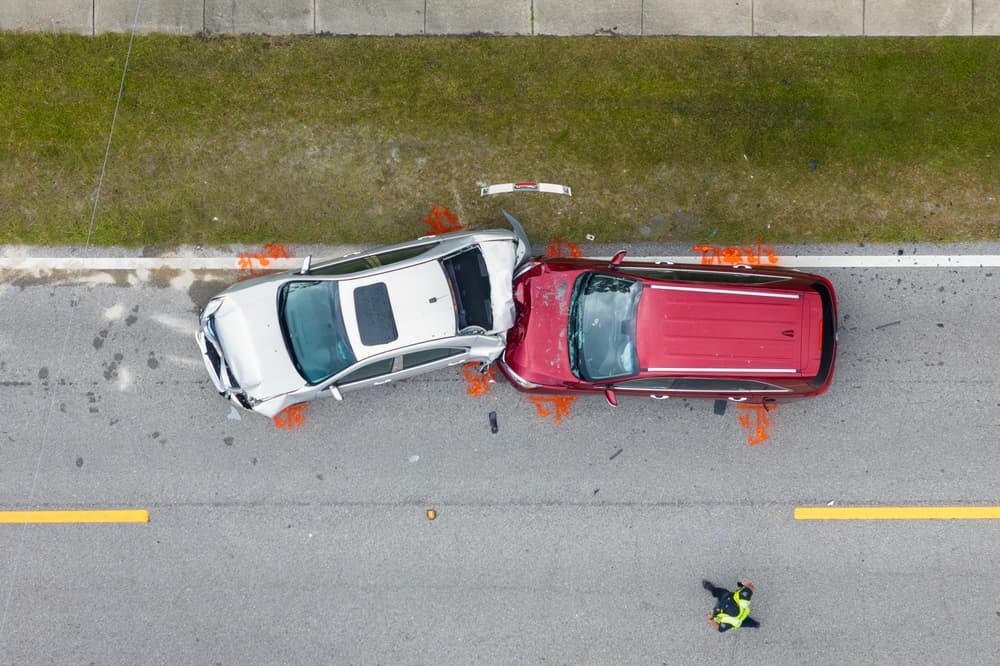Hurricanes and tropical storms can cause devastating damage to both homes and businesses in their paths.
As residents of New Orleans know all too well, these powerful storms bring high wind speed, torrential rains, downed power lines, flying debris, and other hurricane hazards, which can leave a trail of destruction in their wake.
At Cueria Law Firm LLC, we understand that the aftermath of a hurricane can be overwhelming, and we want to help with hurricane damages. In this blog post, we will discuss common types of hurricane damage that can occur following a hurricane.
10 Most Common Types of Hurricane Property Damage
#1 Flooding
This is the most common type of hurricane damage. As residents of New Orleans know, flooding can have a long-lasting impact on communities, with the aftermath of a flood often taking months or even years to fully recover from.
The heavy rains and storm surges associated with these storms can lead to overflowing rivers, creeks, and canals, as well as flash flooding in low-lying areas. Floodwaters can damage or destroy homes and businesses, and can also cause mold and mildew issues.
#2 Wind Damage
Hurricane winds and tropical storm force winds can cause damage to roofs, windows, and exterior walls. This type of hurricane damage can also lead to power outages, which can make it difficult to pump out floodwaters.
Fallen trees and debris can block roadways, making it difficult for emergency responders to reach affected areas.
#3 Storm Surges
A storm surge is a rise in sea level that occurs during a hurricane or tropical storm. This rise in sea level can cause severe flooding in low-lying areas, and can also lead to beach erosion and damage to coastal infrastructure. Homes and businesses located near the coast are particularly vulnerable to storm surges, as they can be flooded or washed away by the powerful waves.
This type of hurricane damage can also lead to flooding and erosion. In addition to flooding, storm surges can cause wind damage to homes and businesses. The high winds associated with hurricanes can cause damage to roofs, windows, and exterior walls, which can make homes and businesses more vulnerable to flooding.
#4 Tornadoes
Tornadoes are small but powerful rotating columns of air that can form within a hurricane or tropical storm. These tornadoes can cause severe damage to homes and businesses, with wind speeds reaching up to 200 miles per hour. They can tear off roofs, uproot trees, and cause structural damage to buildings.
#5 Power Outages
As stated earlier, power outages are caused by high winds and flooding that can damage or destroy power lines and electrical infrastructure. These outages can make it difficult to pump out floodwaters and can also cause widespread hurricane damage to homes and businesses.
Without power, homes and businesses can quickly become uninhabitable, with no access to heat, light, or communication. Power outages can also cause a range of health and safety hazards, such as food spoilage and the inability to refrigerate medications.
In addition, power outages can cause water shortages and make it difficult to contact emergency services.
#6 Tree Damage
High sustained winds can cause trees to fall, which can damage homes and cars and can also cause power outages. Tree damage during a hurricane can cause a range of problems, from fallen branches to entire trees being uprooted.
High winds can cause trees to fall, which can damage homes and cars, and can also cause power outages. In addition, fallen trees can block roadways, making it difficult for emergency responders to reach affected areas.
#7 Sewer and Water Damage
Sewer and water damage is caused by heavy rains and storm surges that can overwhelm and damage sewer and water systems. This type of hurricane damage can lead to overflowing sewers and backed-up toilets, which can create health hazards and cause extensive damage to homes and businesses.
In addition to the damage caused by the sewer and water systems, this type of damage can also lead to mold and mildew issues. Without proper cleanup, mold can grow and spread quickly, causing health problems and damaging the structure of your home or business.
#8 Coastal Erosion
Coastal erosion is caused by storm surges and high winds that can erode and wash away beach sand, dunes, and cliffs, which can damage homes and businesses located near the coast. This erosion can also lead to the collapse of coastal infrastructure, such as seawalls and jetties, which can cause further damage to homes and businesses.
#9 Landslides
Heavy rains can cause landslides, which can damage homes and businesses located on hillsides. Landslides are caused by heavy rainfall and saturated soil that can cause soil and rock to shift, leading to landslides.
These landslides can cause damage to homes and businesses, and can also block roadways making it difficult for emergency responders to reach affected areas. The landslides can also cause flooding and damage to infrastructure.
#10 Debris
Hurricanes can cause debris to be scattered everywhere, which can damage homes and businesses and create safety hazards.
What to Do When You Have Hurricane Damage
If you have been affected by a hurricane and have experienced any of these types of hurricane damage, it’s important to take action as soon as possible. Contact a personal injury attorney to discuss your options and help you get the compensation you deserve.
At our personal injury law firm, we are here to help you through the process and ensure that your rights are protected. Reach out to us to schedule a free consultation regarding hurricane damage.



